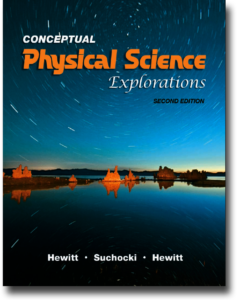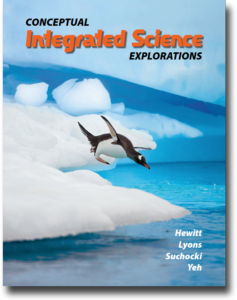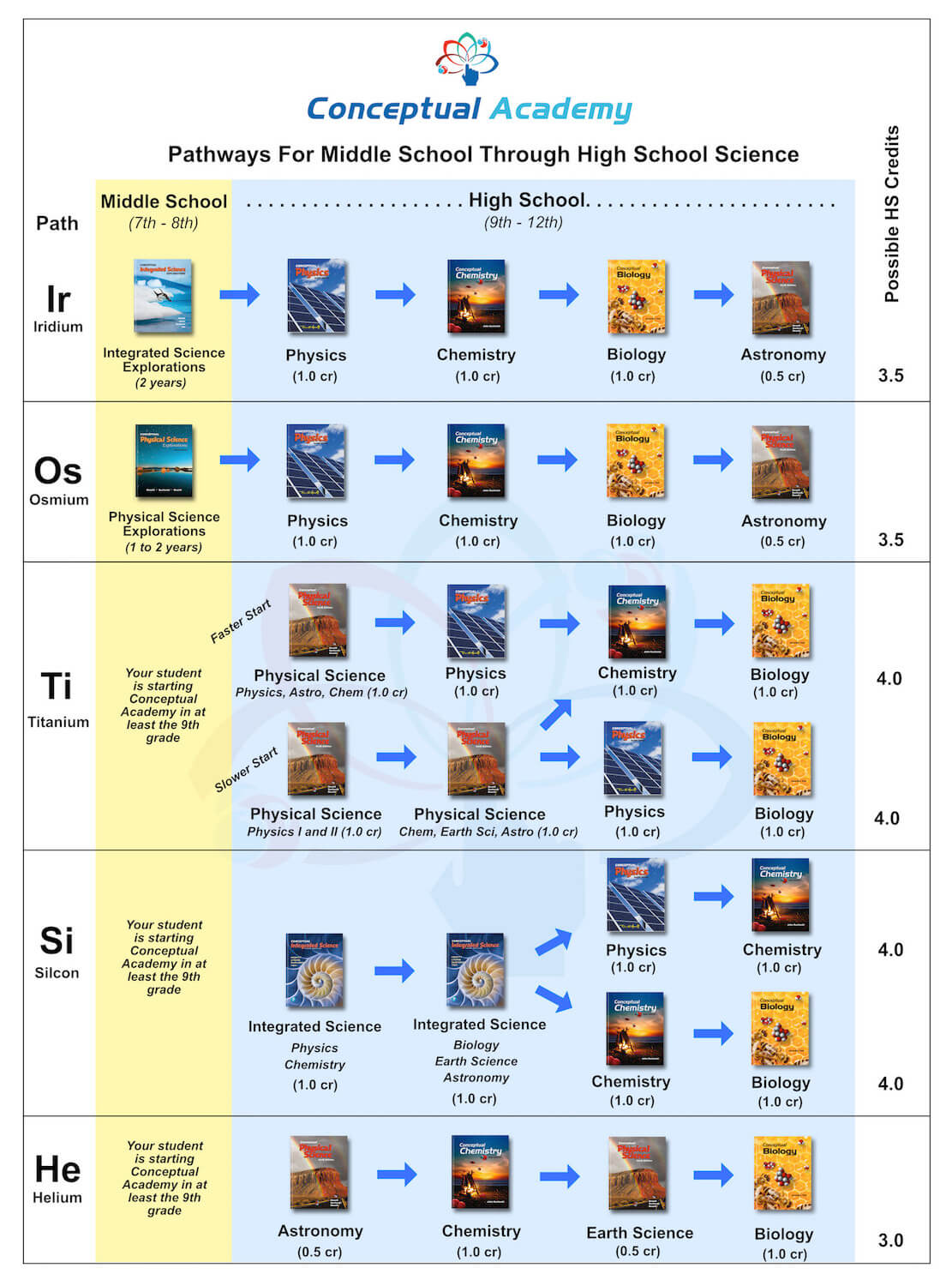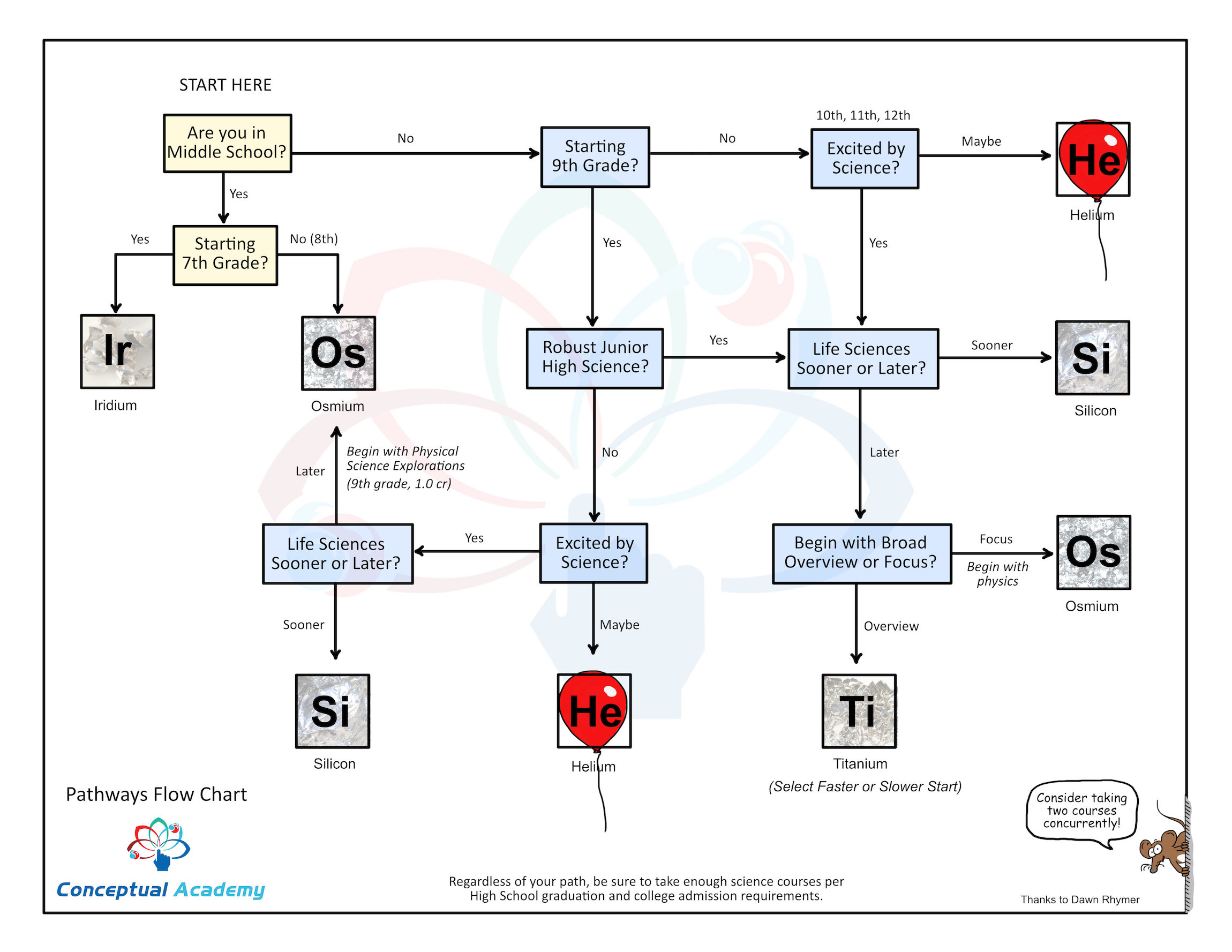
For Middle School—An Overview
 Our “college-level” conceptual textbooks help the student build a strong foundation in the basic concepts of science, which are presented in the context of our daily lives. Because of this orientation, our books have become popular among high schools. Given this popularity, our publisher, Pearson Education, asked us to create textbooks appropriate to the middle school level, grades 7 – 8 as well as grade 9. This resulted in our two “Explorations” titles, one in physical science and the other in integrated science. We are very proud of these two titles: Conceptual Physical Science Explorations and Conceptual Integrated Science Explorations.
Our “college-level” conceptual textbooks help the student build a strong foundation in the basic concepts of science, which are presented in the context of our daily lives. Because of this orientation, our books have become popular among high schools. Given this popularity, our publisher, Pearson Education, asked us to create textbooks appropriate to the middle school level, grades 7 – 8 as well as grade 9. This resulted in our two “Explorations” titles, one in physical science and the other in integrated science. We are very proud of these two titles: Conceptual Physical Science Explorations and Conceptual Integrated Science Explorations.
The goals of each of these courses are to provide a broad introduction to the basic concepts of science as well as to keep the student turned on to the joys of learning science. After completing either one of these courses, the student will be set to focus on the individual areas of science in high school. For this we recommend physics first, followed by chemistry, and then biology. Why? Because biology is the chemistry of life. Chemistry is the physics of the atom. And physics is a study of the fundamental rules of nature.
- To learn more about each textbook, please click on a cover shown below to find the table of contents and our teaching philosophies.
- To learn more about our self-study courses, review the course descriptions accessible through the side bar menu.
Click on a textbook to learn more about its contents.
PATHWAYS for SCIENCE
Middle School Through High School
We are often asked what sequence of science courses we might suggest for homeschooling students of different starting points within their middle school through high school years. We created this pathways document to help answer this question. Of course, every student is unique. Thus, these flow charts serve only as a broad brush stroke general guide for you to apply to your own particular situation.
For a complete discussion of these graphics, open this document: Pathways.pdf
Music Video Montage: The Works!




